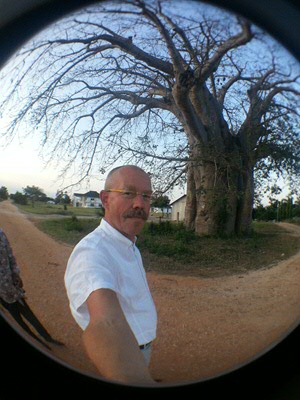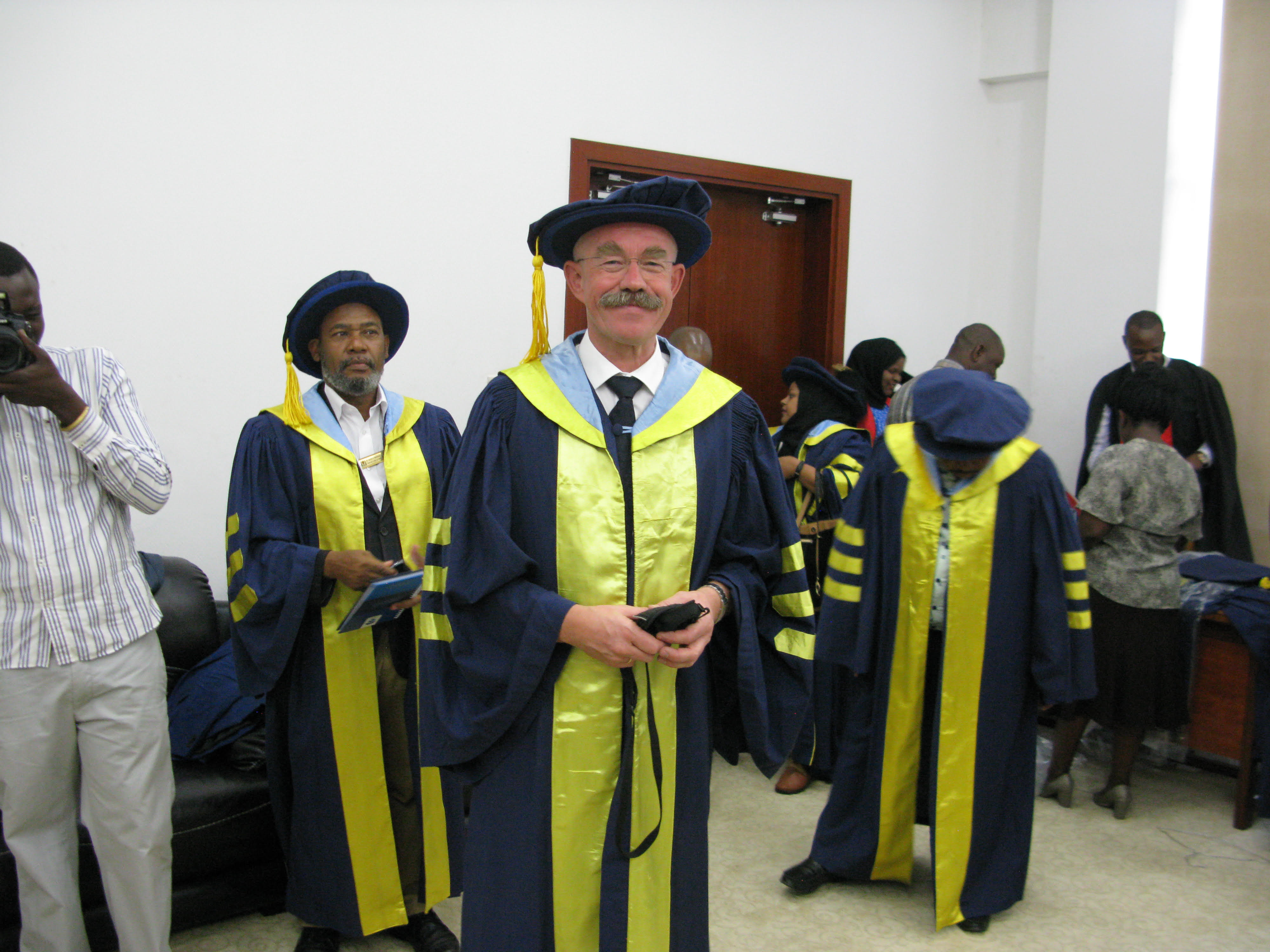Bartjan Pennink | Faces of FEB
The Faculty of Economics and Business is a faculty with great diversity of people who all have an impact on science and society. But who are these people? Within ‘Faces of FEB’ we connect with different staff and students of the faculty to give a little peek into their world. This week: Assistant Professor Bartjan Pennink, who specialized in qualitative research methodology and local economic research, is a visiting lecturer at the Institute of Finance Management in Dar es Salaam, Tanzania.

Could you tell us a bit about yourself?
I am an assistant professor at the department of Global Economics and Management. After my study of Sociology at this university, I started to work here in 1984. In 1988, I started working for the Faculty of Economics and Business and in 2004 I finished my PhD. For the last ten years, the focus of my research has been on modeling the process of local economic development. For my research, I travel to Indonesia and Tanzania in order to collect data in regional remote areas. From this focus, I made the connection with sustainable business models, by looking into which factors support the cooperation of involved actors and which values need to be shared in order to stimulate local economic and social development.
Together with master students, mostly from IB, I make little steps forward in the modeling process. On my website Sustainable Local Economic Development, you can find more information about this.
In my teaching I am involved in courses on Corporate Social Responsibility (MSc), courses on Organizational Theory (BSc) and on Project Management for Humanitarian Actions (MSc). Since 2015, I have a visiting lecturer position in the field of research methodology at the Institute of Finance Management (IFM) in Tanzania (Dar es Salaam). Besides the regular programs, I also contribute to the Honours Master programs of the UG by giving master classes on Ubuntu and on new (sustainable) economic business models.
But there is much more than work. I am living in Appingedam, a beautiful city with ancient roots. In the summer season I work as a city guide together with a team to show tourists how interesting this city is. Besides this, I am also a member of a choir, Toonkunst Koor Delfzijl. And last but not least, I am chair of the work group The Green Nicolai Church. We work on sustainability.
You have been quite active in Africa; where does your interest in this continent come from?
Thinking of Africa as the continent we hardly know anything about is one way of looking at it. But I consider this as an excellent option to see what internationalization really means! Doing your work in a different continent and learning from this different context! Indeed, you can frame it also with the help of the Sustainable Development Goals, and in this context specifically with number 17. Africa is also a continent in which a lot of support is needed. Working overthere creates possibilities that might contribute to improvements and also makes you aware of the difference between helping and working together.
What I like the most, is to work in circumstances of uncertainty, the need for improvisation,the possibility to add to the development of an African partner and last but not least I enjoy the travel.
You are currently a visiting lecturer at the Institute of Finance Management in Dar es Salaam, Tanzania. Could you tell us something about this?
After some years of working at this faculty I was invited in 1990 to join a project of the Nuffic in Burkina Faso. It gave me the opportunity to learn how to teach research methodology in a different context: much more uncertainty, the same level of teaching which highly motivated students, and less facilities which was exciting and needing a lot of improvisations (for example with electricity cuts).
After about ten years working every year for three weeks In Burkina Faso, I got a new chance of becoming a manager of a Nuffic project in Tanzania in cooperation with the IFM. Working in the management of such projects opened up possibilities of learning how to develop together with African partners to get the most out of the time and money in such a way that it contributes in a good way to the development of the IFM. This work resulted in setting up and working out a real cooperation between two institutes, with concrete goals of having a bachelor exchange program, taking care of summer school as a shared responsibility and offering PhD research options to staff to visit each other and share research activities. This cooperation has now already been running for more then three years, the second period of three years. For this part of the job I visit the IFM at least twice a year (if possible). Once for teaching a course on research methodology for young staff members who are eager to start a PhD research and once for a summer school in which Tanzanian students and students of our faculty participate.

Which other projects have you done in Africa?
I worked for ten years (1990-2002) in a Nuffic project in Burkina Faso. In this project I delivered a course on research methodology. Each year I went there in January for three weeks. Also, I created several options for students in the North of Tanzania and Rwanda to do an internship in the African context and, together with other colleagues, I have been creating several options for Master students to do their Master thesis in Africa since 1991. And last, I supervised Risk’s International Finance Program (IFP) in Tanzania in 2019.
Are there any projects you still would like to run in Africa? Or are there any other interesting projects in Africa of other FEB colleagues that we all should know about?
Much more FEB colleagues work on matters that are related to Africa. Please have a look at the activities for staff overview on our Africa pages.
Africa sounds like a country but actually is a huge continent with more than 50 countries and an enormous diversity. For me, it is the place to learn how to cope with diversity in a way that goes much further than cultural diversity!
| Last modified: | 05 January 2022 12.11 p.m. |
